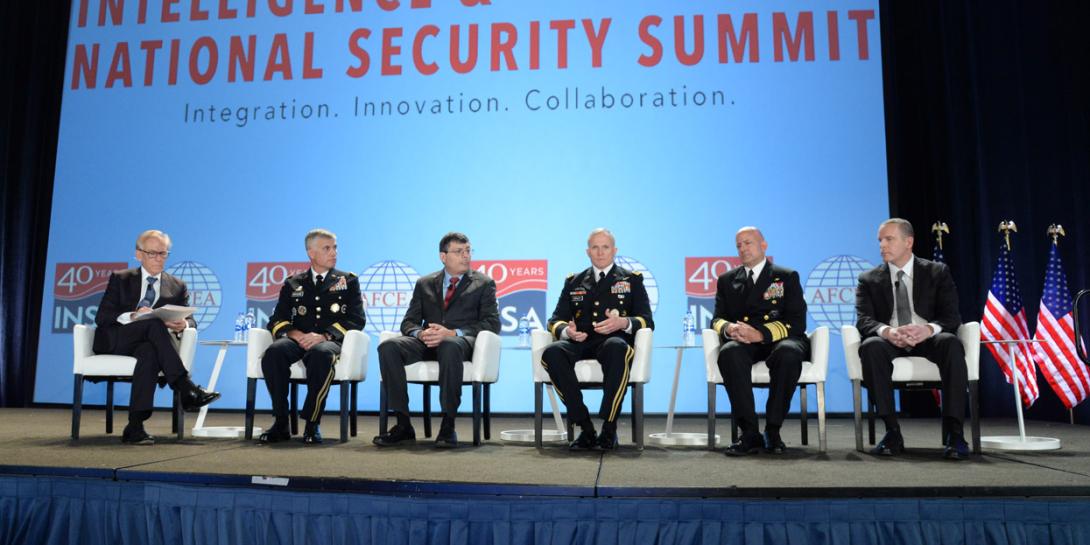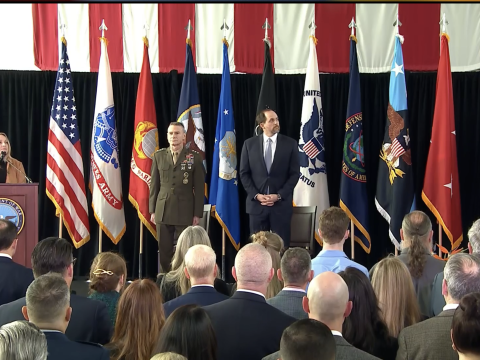Lessons Learned Fuel U.S. Intelligence in Cyberspace
Government agencies are working together much more effectively as they counter terrorism and state-sponsored attacks in cyberspace. But more remains to be done as adversaries introduce new tactics and capabilities.
A panel comprising the top U.S. intelligence officials reviewed these issues as they closed out the AFCEA/INSA Intelligence & National Security Summit on September 5. Their points ranged from foreign interference in U.S. elections to cooperation—or the lack thereof—from industry with the U.S. government.
“We learned a lot of hard lessons from our mistakes in 2016. The level of intelligence sharing with state and local officials now is working very well,” said Paul Abbate, associate deputy director, FBI. Lt. Gen. Paul M. Nakasone, USA, commander, U.S. Cyber Command and the National Security Agency, expanded on Abbate’s remarks. “In 2018 [elections], we looked back at 2016 and fully understood our adversary. … The FBI was very helpful working with social media to alert them to actions our adversaries might take,” the general stated.
In 2018 [elections], we looked back at 2016 and fully understood our adversary … The FBI worked with social media to alert them to actions our adversaries might take. —Lt. Gen. Paul M. Nakasone, USA, commander, CYBERCOM and NSA @US_CYBERCOM @NSAGov @GenpaulMNakaso2 IntelSummit19
— Bob Ackerman (@rkackerman) September 5, 2019
“Having a foreign government try to influence is nothing new,” added Lt. Gen. Robert P. Ashley, USA, director, Defense Intelligence Agency. “What is new is the means by which you can do it at scale and speed.”
Having a foreign government try to influence is nothing new. What is new is the means by which you can do it at scale and speed.—Lt. Gen. Robert P. Ashley, USA, director, DIA @DefenseIntel IntelSummit19
— Bob Ackerman (@rkackerman) September 5, 2019
On the terrorism front, panelists agreed the threat has changed. “We have seen a shift from the international terrorist to the home-grown terrorist here,” Abbate noted. “We’ve had to shift with that, and it’s a growing problem.
“All of us in our organizations here remain focused on countering terrorism. Period,” Abbate emphasized.
We have seen a shift from the international terrorist to the home-grown terrorist here. We’ve had to shift with that, and it’s a growing problem.—Paul Abbate, associate deputy director, FBI @FBI #IntelSummit19
— Bob Ackerman (@rkackerman) September 5, 2019
Panelists discussed how Google declined to work with the U.S. government on a national security project, yet it seemed to have no problem working with the government of China. Gen Nakasone noted that China has an Orwellian network that monitors and restricts the expression of ideas, while also monitoring its citizens by applying facial recognition software to street camera images.
Gen. Ashley was blunt in expressing his feelings about this seeming hypocrisy. “For 35 years, I get up every morning and my task is to protect your hopes and dreams,” he stated. “And for somebody to say they cannot get onboard that cause … how can you say you cannot support those hopes and dreams?"




Comments